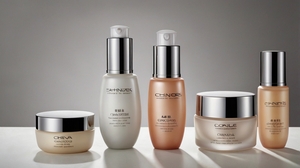China Skincare Market Analysis 2025: Key Insights and Industry Dynamics
Posté par shirlley williams
Corps
The Chinese skincare market in 2025 continues to evolve rapidly, driven by shifting consumer behavior, innovative trends, and intense competition. As one of the largest beauty and personal care markets globally, China remains a key focus for both international and domestic brands looking to capitalize on new opportunities.
Market Overview: Sustained Growth and Expansion
China skincare market is expected to exceed $80 billion in 2025, demonstrating strong growth fueled by rising disposable incomes and increased skincare awareness. The demand for high-performance skincare is at an all-time high, with consumers gravitating toward products that offer clinical efficacy and advanced formulations.
Online retail remains the dominant sales channel, with platforms like Tmall, JD.com, and Xiaohongshu shaping purchasing habits. The integration of livestream shopping and influencer-driven marketing continues to boost e-commerce sales, making digital engagement a crucial strategy for brands.
Key Trends: Innovation and Sustainability
Several trends are shaping the skincare market in China for 2025:
- Clean Beauty and Sustainability: Consumers are prioritizing eco-friendly and non-toxic skincare solutions. Brands that emphasize sustainable sourcing, biodegradable packaging, and cruelty-free formulations are gaining traction.
- Personalized Skincare: AI-driven diagnostics and customized skincare regimens are on the rise. Personalized products tailored to specific skin concerns are becoming mainstream, particularly among Gen Z and Millennials.
- Medical-Grade and Functional Skincare: There is growing interest in dermo cosmetics, which blend medical-grade ingredients with traditional skincare. Products featuring probiotics, peptides, and ceramides are especially popular among discerning consumers.
Consumer Preferences: A Shift Towards Science-Backed Solutions
Chinese consumers are becoming more knowledgeable and selective about their skincare choices. They seek transparency, preferring brands that provide detailed ingredient lists and scientific backing. Younger generations, particularly Gen Z, rely heavily on digital reviews, social media influencers, and dermatologist recommendations.
Male skincare is another growing segment, with an increasing number of men integrating specialized products into their routines. This shift is encouraging brands to develop targeted solutions catering to male consumers.
Innovation: The Role of Technology in Skincare
The intersection of technology and skincare is reshaping the industry. Smart beauty devices, AI-powered skin analysis, and biotech-infused formulations are driving the next wave of product innovation.
- Biotechnology: Advanced formulations with bioengineered ingredients are gaining popularity.
- Smart Devices: Tools like LED therapy masks, facial massagers, and at-home diagnostic kits are becoming household essentials.
- Augmented Reality (AR) Shopping: Virtual skin consultations and AR-powered product trials are enhancing the digital shopping experience.
Competitive Landscape: Domestic vs. International Brands
The Chinese skincare market remains highly competitive, with international powerhouses like L’Oréal, Estée Lauder, and Shiseido facing increasing pressure from domestic brands such as Proya, Winona, and Perfect Diary.
Local brands have a distinct advantage due to their deep understanding of Chinese consumer preferences, faster product innovation cycles, and competitive pricing strategies. Meanwhile, global brands are investing heavily in localization, collaborating with Chinese influencers and adapting their marketing strategies to suit regional tastes.
Fore More Info : - https://www.gmiresearch.com/report/china-skincare-market/
Conclusion
As China’s skincare market continues to flourish, brands must stay ahead of emerging trends, leverage technological innovation, and navigate the competitive landscape effectively. The future belongs to companies that can seamlessly combine science, sustainability, and digital engagement to meet the evolving demands of Chinese consumers.
Company Name: GMI RESEARCH
Email: enquiry@gmiresearch.com
Address: Dublin, Ireland
Website: https://www.gmiresearch.com/
GMI Research – Consulting & Market Research









commentaires